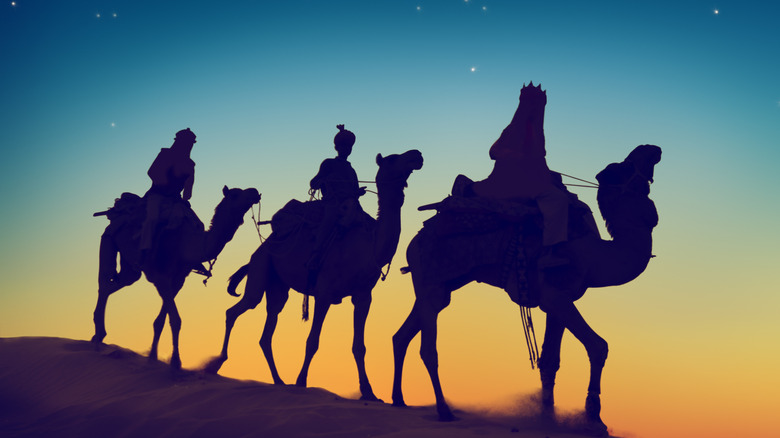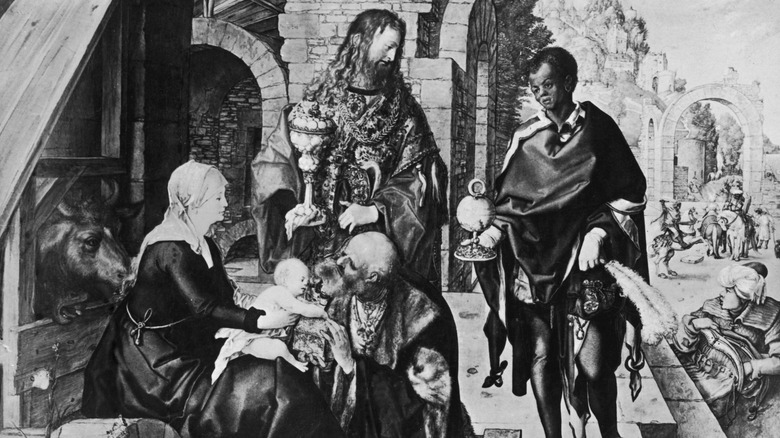The Spiritual Meaning Behind The Three Wise Men's Gifts To Jesus
According to multiple Christmas carols and Nativity scenes, when baby Jesus was born, Three Kings were led by a bright star to find his location and pay homage to the infant announced in prophecies. They only appear during the infancy narrative of Jesus' history, and they are only mentioned in the Book of Matthew. However, there are some differences between the Christmas carols and the Bible.
The Bible refers to them as wise men, or Magi, from the East, not as kings. The book also doesn't mention how many they were. "About that time, some wise men from eastern lands arrived in Jerusalem, asking, 'Where is the newborn king of the Jews? We saw his star as it rose, and we have come to worship him'" (Matthew 2:1-2).
According to Britannica, some Eastern traditions claim there were 12 Magi. However, the Western tradition probably assumed they were three, based on the three gifts they brought: gold, frankincense, and myrrh.
The Wise Men come from different kingdoms
According to National Geographic, it was common that astrologers served as priestly advisers in the East. After some centuries, the Bible translator would refer to the wise men in the Gospel narrative as kings. Centuries later, the non-biblical tales would also include their names and where they come from: Balthazar from Arabia, Melchior from Persia, and Gaspar from India. Some people also refer to Gaspar as Jaspar, and Caspar. The Western tradition often represents Melchior as the oldest of them.
The wise men traveled for 12 days until they found Baby Jesus, knelt and offered him the gifts. Each gift had a special meaning. Gold honors the King of Jews; frankincense recognizes Jesus as a divine being and Son of God; myrrh means that Jesus was also human and mortal (via National Geographic). The three Magi are recognized as saints, and they are celebrated on January 6 (12 days after Christmas) on the Feast of the Epiphany.

